Middle East
Tunisia mass trial highlights opposition crackdown, weakening of judiciary | Human Rights News
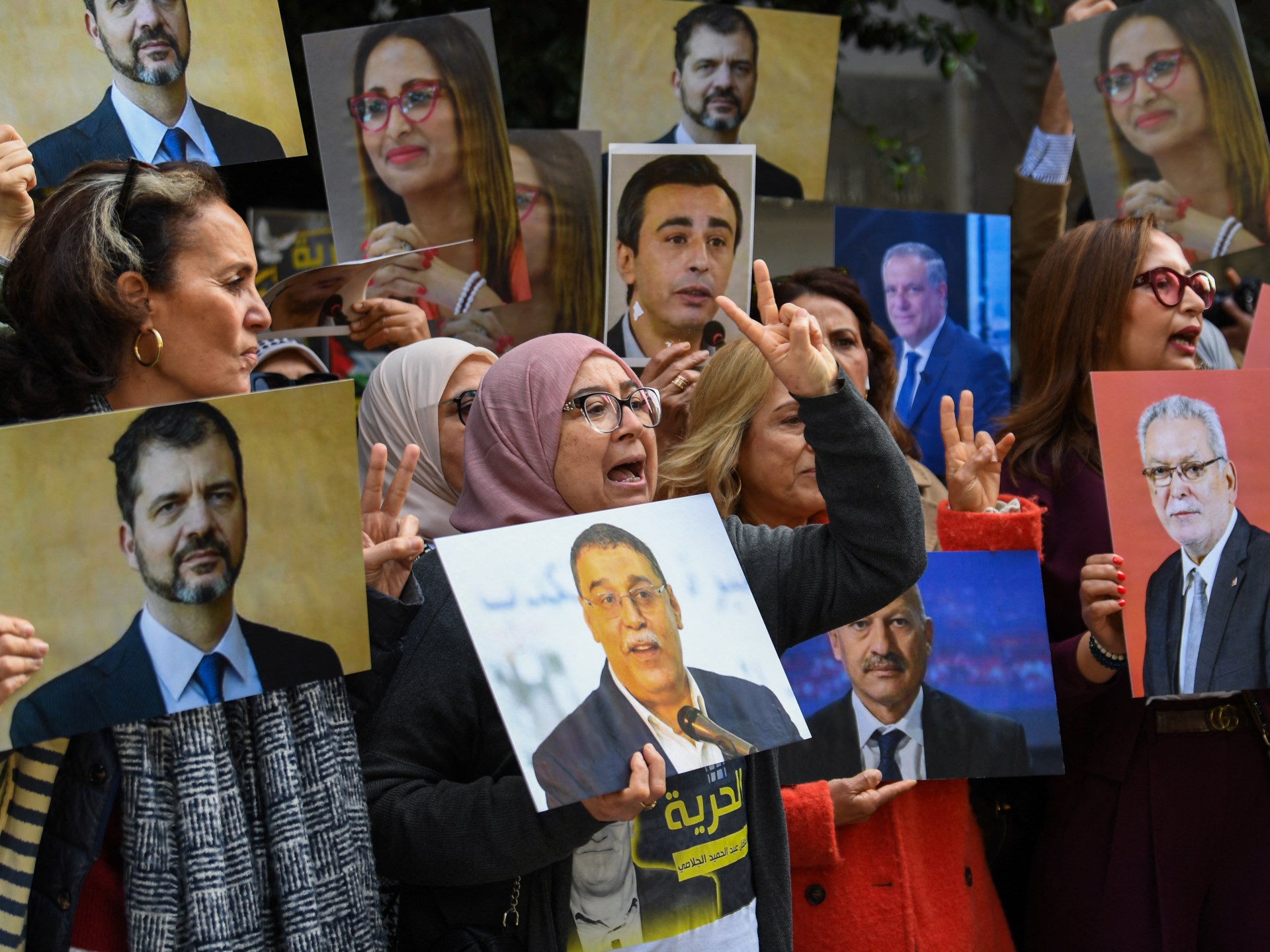
For detractors of Tunisia’s President Kais Saied, the trial of more than 40 opposition figures is quite clearly a further nail in the coffin of the country’s democracy – and the rule of law.
The defendants in the trial – which resumes on Friday after being adjourned the day it opened on March 4 – are some of the government’s leading critics. They include former diplomats, media personalities, and members of what was once parliament’s biggest party, the ‘Muslim Democrat’ Ennahda.
And yet, they face charges such as “plotting against the state” and “belonging to a terrorist group”, accusations that were denounced on the first day of the trial as an “absurdity” by defence lawyer Abdelaziz Essid.
One of those being tried – in absentia – in what has become known as the ‘conspiracy case’ is even the French intellectual, Bernard-Henri Levy, who is accused of being a conduit between defendants and foreign parties.
Information on the precise details of the trial remain cloudy, with the exact number of those on trial and the specific charges they face unclear.
The mass trial has been denounced both on the streets of Tunis, where hundreds of people took to the streets on Wednesday, and by observers and analysts who spoke to Al Jazeera and describe the court proceedings as another example of Saied’s deliberate silencing of dissent.
Flawed trial
Rights groups, including Human Rights Watch (HRW), have slammed the mass trial as evidence of a “weaponised” judiciary and a further crackdown on fundamental freedoms. In the build-up to the trial, the United Nations criticised the government, calling on it in a statement earlier this year to “end all forms of persecution of opponents and activists”.
The Tunisian Foreign Ministry subsequently criticised what it said were “inaccuracies” in the UN statement.

In February, nine of the defendants facing trial were deemed “too dangerous” to attend their trial in person.
Six of them, including leading opposition figure Jaouhar Ben Mbarek and a former Ennahdha leader, Abdelhamid Jelassi, have been held since February 2023.
Ben Mbarek began a hunger strike on March 30 to protest his exclusion from his trial.
He was joined on Wednesday by five other defendants similarly excluded from their trial – the aforementioned Jelassi, politicians Issam Chebbi, Khayam Turki and Ghazi Chaouachi, and lawyer Ridha Belhaj.
All of the defendants face lengthy jail sentences if found guilty, up to and including the death penalty, which has been suspended in Tunisia since 1991.
“President Saied has weaponised Tunisia’s judicial system to go after political opponents and dissidents, throwing people in arbitrary detention on flimsy evidence and pursuing them with abusive prosecutions,” Bassam Khawaja, deputy Middle East and North Africa director at HRW, told Al Jazeera.

Weakening the judiciary
Increased government control over the judiciary have many observers worried as to whether the defendants in the trial have a realistic chance of being found innocent, even if the evidence against them is weak.
Doubts over the independence of Tunisia’s judiciary have grown since Saied dissolved the country’s judicial council in 2022 and then replaced it with a body he has more control over.
What internal resistance remained to Saied’s changes ended in June that year, when he dismissed 57 judges, telling a television audience he had “given opportunity after opportunity and warning after warning to the judiciary to purify itself”.
“The conspiracy trial is a living example of how the office of the prosecutor and courts are used as a tool to crush dissent and to crack down on the rule of law and fundamental freedoms,” Said Benarbia of the International Commission of Jurists told Al Jazeera.
“The prolonged, arbitrary pre-trial detention, the lack of credible evidence, and the order prohibiting some of the defendants from attending their own trial in person, leave no doubt as to the unfairness and the politicised nature of the conspiracy trial,” he said.
No longer a success story
Tunisia had been celebrated as one of the few successes of the 2011 “Arab Spring” revolutions, with strong political engagement among its public and civil society members, who frequently took to the airwaves and streets to make their voices heard.
The years that followed the revolution, which overthrew long-time autocrat Zine El Abidine Ben Ali, saw the growth of a healthy political system with numerous elections declared free and fair by international observers.
But a weak economy and the strengthening of anti-democratic forces led to a pushback, capped off by Saied’s dismissal of the government and dissolution of parliament in 2021 and 2022.
He has since ruled by presidential decree and rewritten the country’s constitution, entrenching the power of the presidency.
Alongside that centralisation of power has been a purge of Saied’s opponents, including politicians and prominent figures within Tunisia’s formerly booming activist groups.
Among those targeted include Ennahda figures such as leader and the former speaker of parliament Rached Ghannouchi, former Prime Minister Hichem Mechichi, former Minister of Justice Noureddine Bhiri, and Said Ferjani, a member of the party’s political executive. But the crackdown has also hit many non-Ennahda figures, including Abir Moussi, a former support of Ben Ali and a fierce critic of Ennahda, and Abderrazek Krimi, the project director of the Tunisian Refugee Council.
Ferjani, Bhiri and Moussi are all among the defendants in the current mass trial.
The suppression of Tunisia’s opposition has also accompanied other efforts denounced by rights groups.
In September 2022, Saied passed a decree criminalising any “fake news” spread by electronic means, with the responsibility of deciding what was “fake” falling to the increasingly obedient court system.

Under this law, more than 60 people, including journalists, lawyers, and opposition figures, have been prosecuted for public speech deemed legally false, Zied Dabber, the head of the National Union of Tunisian Journalists, was quoted as saying by the AFP news agency last year, the vast majority of them for criticising Saied and his administration.
“People are scared and people are tired,” the Tunisian author Hatem Nafti, who now lives in Paris, told Al Jazeera.
“People know they can go to jail for nothing,” he continued.
“Fear isn’t new to Tunisia. I lived the first part of my life under Ben Ali,” he said of the Tunisia’s president from 1987 until 2011. But Nafti said that under Ben Ali Tunisians knew that the red lines largely surrounded the president and the governing system, whereas now it was less clear what would make a person fall foul of the authorities.
“If you criticised him [Ben Ali], you went to prison. Now, there are no rules,” Nafti said.
He pointed to friends of his, such as the outspoken left-wing firebrand Hamma Hammami, who regularly criticises Saied yet remains at liberty, and others, such as the lawyer Sonia Dahmani, who faces trial today for seemingly innocuous comments made during a talk show.
“There are no rules, nothing,” Nafti said of the present administration, “and I think that makes people more afraid.”
Middle East
‘Conspiracy trial’ restarts: What’s Tunisia’s history with death penalty? | Human Rights News
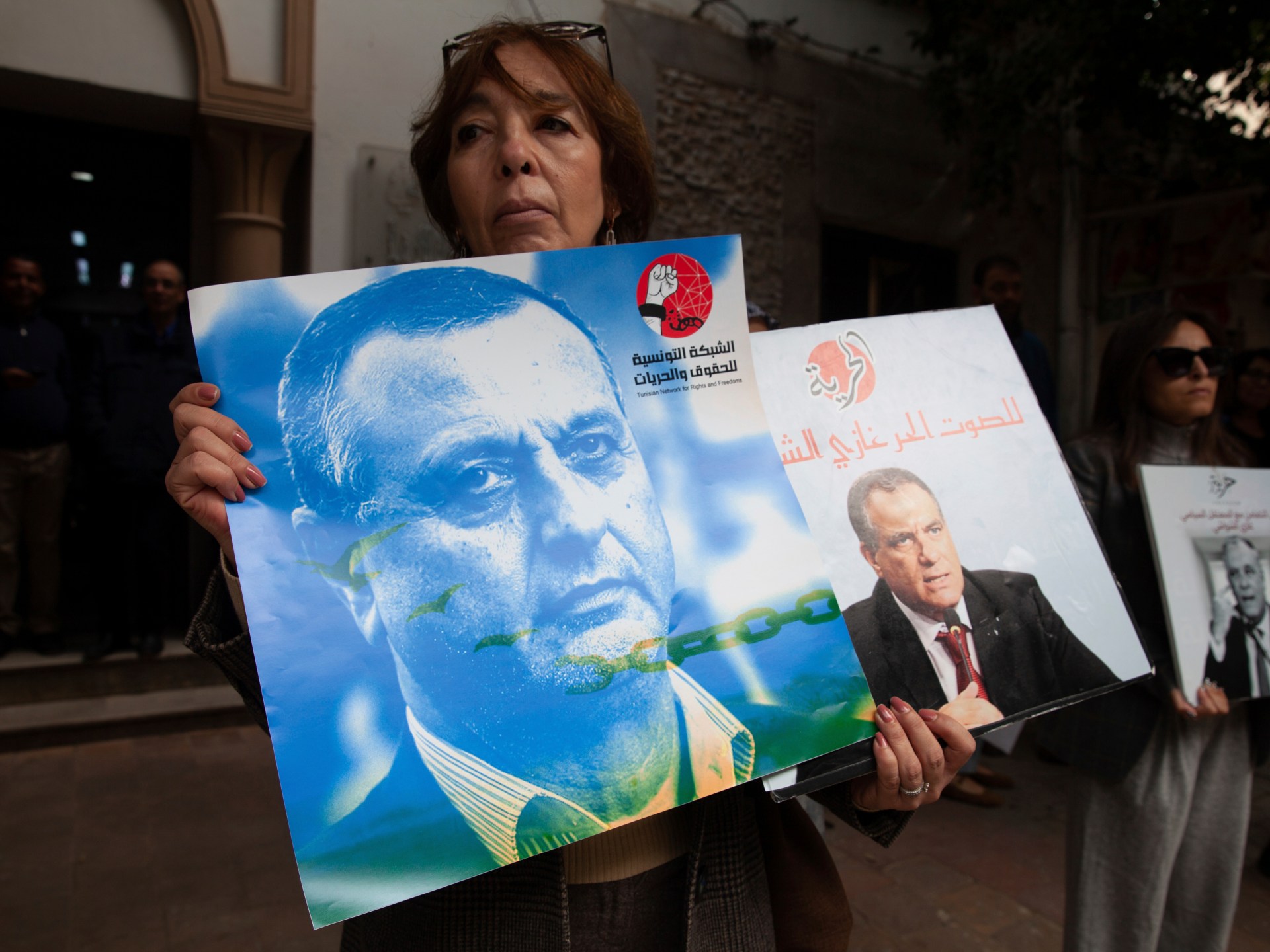
A mass trial is set to resume in Tunisia of more than 40 people accused of various conspiracies against the Tunisian state and its president, Kais Saied.
The trial, originally scheduled to begin on March 4, was postponed to April 11, then delayed again for a week.
Among the defendants are some of the country’s most senior opposition politicians, diplomats and media personalities who say the charges, including liaising with “foreign powers” to undermine Saied’s rule, are trumped up and a symbol of Tunisia’s democratic backsliding.
Nearly all the defendants face either lengthy jail sentences or the death penalty.
Executions have been effectively suspended in Tunisia since 1991, despite judges handing down the sentence.
Would some of the defendants be sentenced to death in this case? And would such a sentence be implemented?
Let’s take a closer look.
Does the death penalty still exist as a punishment in Tunisia?
The death penalty remains a legal sentence available to judges, but it hasn’t been carried out since 1991, establishing a de facto moratorium.
The 2014 constitution does make specific allowances for legal executions, but Tunisia has consistently supported United Nations efforts to establish a global moratorium on the use of the death penalty since 2012.
However, it has not abolished the death penalty.
Have people been sentenced to death in Tunisia?
While the last person to be executed in Tunisia was the “Butcher of Nabeul”, serial killer Naceur Damergi, who was hanged in 1991, the penalty continues to feature in legislation and in sentences.
As recently as February of this year, eight individuals were sentenced to death for the 2013 murder of opposition politician, Mohammed Brahmi, while, in March 2024, four were given death sentences for the killing the same year of another politician, Chokri Belaid.
In 2022, 16 people accused of being members of ISIL (ISIS) were sentenced to death over their part in the 2016 attack on the southern desert city of Ben Guerdane, which killed seven civilians and 13 members of the security forces.
Similarly, in January 2020, a Tunisian court sentenced eight individuals to death for their involvement in the 2015 suicide bombing of a presidential guard bus in Tunis, which killed 12 presidential guards and injured 20.
Are some of the ‘conspiracy case’ defendants facing the death penalty?
Jaouhar Ben Mbarek, Khayam Turki, Issam Chebbi, Ghazi Chaouachi, Ridha Belhaj, and Abdelhamid Jelassi, who have been held in pretrial detention since February 2023, are charged, among other offences, with attempting to “change the nature of the state” under Article 72 of the Penal Code.
If found guilty, they would face the death penalty.
Another defendant charged with attempting to change the nature of the state is former Justice Minister Noureddine Bhiri, whose accusation rests on a series of social media posts he is alleged to have authored.
Other charges against defendants include plotting against state security and belonging to a “terrorist” group, both of which are capital crimes.
What is President Saied’s attitude towards the death penalty?
He supports it.
During the first presidential hustings of 2019, Kais Saied readily admitted to his support for the death penalty, as long as it was carried out following due process.
In 2020, responding to popular outrage following the brutal killing of 29-year-old Rahma Lahmar, Saied again returned to the issue, telling his security council, “murder deserves the death penalty”.
However, despite Saied’s past public support for the penalty, it is important to note that he has yet to oversee its implementation, despite the wide-ranging purges of his political opponents and critics.
Middle East
At least 38 killed, 102 injured in US air strikes on Yemen: Report | Houthis News
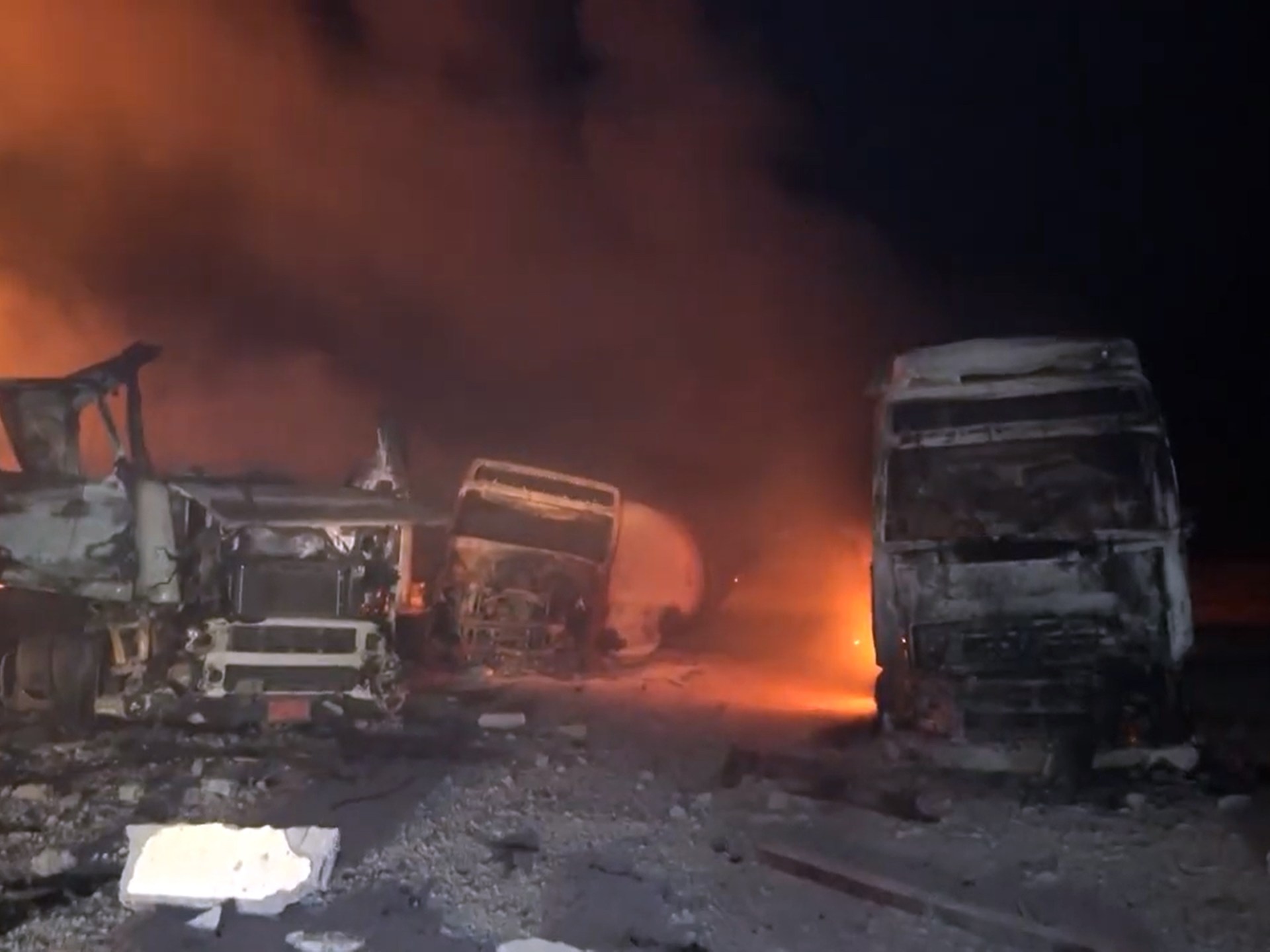
DEVELOPING STORYDEVELOPING STORY,
Reported death toll marks one of the deadliest attacks by the US military on Yemen.
Air strikes by the United States on Yemen’s Ras Isa oil port have killed at least 38 people in what is one of the deadliest attacks on the country by US forces, Houthi-affiliated media report.
Al Masirah TV said the strikes on Thursday also wounded 102 people, citing the country’s Hodeidah Health Office.
The US Central Command (CENTCOM) said that the airstrikes were intended to cut off funding and resources to the Houthis.
“The objective of these strikes was to degrade the economic source of power of the Houthis, who continue to exploit and bring great pain upon their fellow countrymen,” CENTCOM said in a post on social media.
The Pentagon did not immediately respond to a request for comment on the rising death toll.
Video footage shared by Al Masirah TV on social media in the early hours of Friday morning show massive explosions lighting up the night sky across a body of water identified as Ras Isa port. The video then jumps to close-up clips of rubble and fires before panning to a graphic image of a dead civilian.
“Initial footage of the US aggression’s crime targeting the Ras Isa oil port, resulting in a number of martyrs and dozens of port workers and employees being injured,” a caption attached to the post said in Arabic.
Other videos shared by Al Masirah TV on X show similar scenes of destruction and interviews with badly burned port workers.
The US attack marks one of the deadliest since the US launched air strikes against the Houthis in its biggest military operation in the Middle East since US President Donald Trump took office in January. In March, two days of US attacks killed more than 50 people, Houthi officials said
Ras Isa hosts an oil pipeline and port that are “critical and irreplaceable infrastructure” in Yemen, according to the United Nations Development Programme.
About 70 percent of Yemen’s imports and 80 percent of its humanitarian assistance passes through the ports of Ras Isa, Hodeidah and as-Salif.
An Al Masirah TV correspondent said that members of the civil defence force and the Yemeni Red Crescent had been dispatched to the scene to provide medical assistance and extinguish fires.
Houthi official Mohammed Nasser al-Atifi told the news outlet that the “American enemy’s crimes” will not deter the Yemeni people from supporting Gaza, but “rather will strengthen their steadfastness and resilience”.
Early on Friday and just hours after the devastating US attack, Israel’s military said that it had intercepted a missile launched from Yemen.
Since November 2023, the Houthis have reportedly launched more than 100 attacks on vessels they say are linked to Israel, a campaign they say is in response to Israel’s war on Gaza.
Washington has warned the Houthis that attacks will continue until the armed movement ceases attacks on shipping in the Red Sea.
Middle East
Saudi defence minister visits Tehran before Iran-US talks | United Nations News
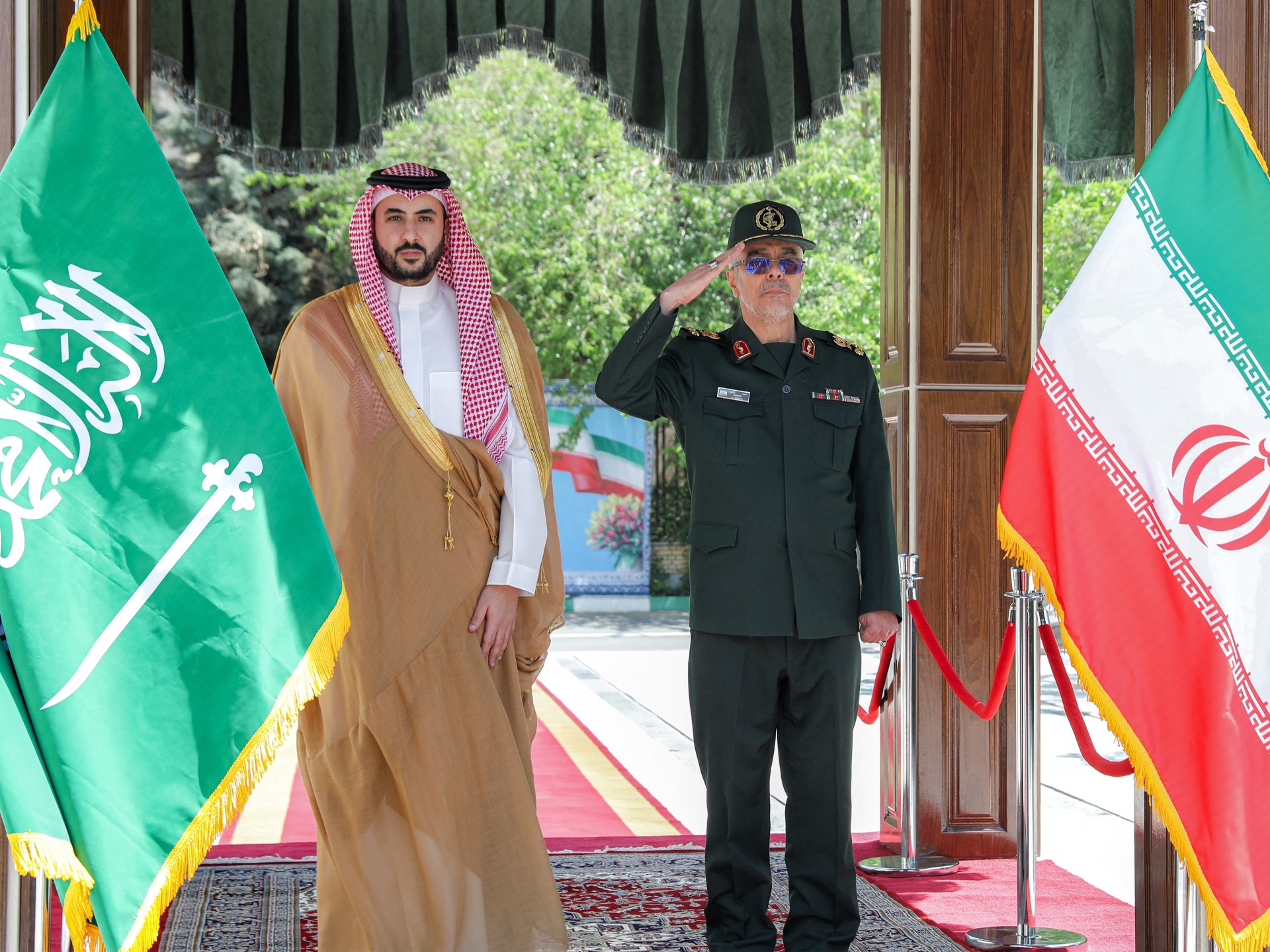
Saudi Arabia’s Defence Minister Prince Khalid bin Salman has met several Iranian officials before a second round of talks between Washington and Tehran over Iran’s nuclear programme.
The visit comes amid growing fears of a potential conflict in the region if diplomatic efforts fail to resolve soaring tensions between the United States and Iran, with President Donald Trump repeatedly threatening to bomb Iran if it does not reach an agreement with the US over its nuclear-related activities.
Prince Khalid said he conveyed a message from Saudi Arabia’s King Salman to Iranian Supreme Leader Ayatollah Ali Khamenei during Thursday’s meeting in Tehran.
“We discussed our bilateral relations and topics of mutual interest,” he wrote on X.
“Our belief is that the relationship between the Islamic Republic of Iran and Saudi Arabia is beneficial for both countries,” Iranian state media cited Khamenei as saying in the meeting on Thursday.
Prince Khalid also met President Masoud Pezeshkian and Iran’s armed forces chief of staff, Mohammad Bagheri.
“Ties between the Saudi and Iranian armed forces have been improving since the Beijing agreement,” Bagheri said after the meeting, according to Iranian state media.
Saudi Arabia has welcomed Iran’s nuclear talks with the US, saying it supported efforts to resolve regional and international disputes.
Hamidreza Gholamzadeh, a political analyst, said the purpose of the Saudi defence minister’s was likely to express concern about a potential attack on Iran.
“Saudis want to share their concern and reassure Iran that they would not like … attacks against Iran and they want better relations with Iran,” he told Al Jazeera.
Iran and Saudi Arabia agreed in a 2023 deal brokered by China to re-establish relations after years of hostility that had threatened stability and security in the Gulf region and helped fuel conflicts in the Middle East from Yemen to Syria.
‘Crucial stage’
The Saudi defence minister’s trip coincided with a visit to Iran by the UN nuclear watchdog chief, Rafael Grossi, who warned that the US and Iran were running out of time to reach a deal.
Iranian and US delegations are set to gather in Rome on Saturday for a second round of Omani-mediated negotiations, a week after the longtime foes held their highest-level talks since US President Donald Trump abandoned a landmark nuclear accord during his first term in 2018.
Since re-entering the White House in January, Trump has revived his so-called “maximum pressure” policy, imposing punishing economic sanctions against Iran and threatening military action if Tehran does not agree to a deal.
“We are in a very crucial stage of these important negotiations. We know we don’t have much time, this is why I am here … to facilitate this process,” Grossi said on Thursday.
“We are working hard and we want to succeed,” he told a joint news conference with Iran’s atomic energy agency chief Mohammad Eslami, acknowledging that the effort to secure a deal was “not an easy process”.
Asked about US President Donald Trump’s threats to attack Iran, Grossi urged people to “concentrate on our objective.”
“Once we get to our objective, all of these things will evaporate because there will be no reason for concern,” he said.
In March, Trump sent a letter to Iran’s Supreme Leader Ayatollah Ali Khamenei urging talks and warning of possible military action if Iran refused.
Khamenei has cautioned that while the talks with the United States had started well, they could yet prove fruitless.
“The negotiations may or may not yield results,” he said on Tuesday.
Western governments have long accused Iran of seeking to acquire nuclear weapons capability, an ambition Tehran has consistently denied.
Since the nuclear deal’s collapse in 2018, Iran has abandoned all limits on its programme, and enriches uranium to up to 60 percent purity, near weapons-grade levels of 90 percent.
Surveillance cameras installed by the IAEA have been disrupted, while Iran has barred some of the Vienna-based agency’s most experienced inspectors.
But despite the tensions between Iran and the agency, its access has not been entirely revoked.
-
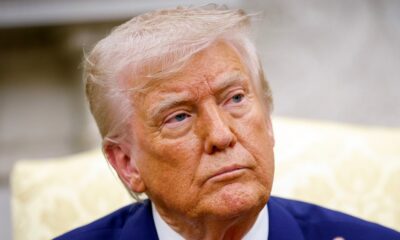
 Education2 days ago
Education2 days agoTrump administration revokes humanitarian parole of Spanish teacher
-

 Europe2 days ago
Europe2 days agoCody Balmer, the suspect in arson at Pennsylvania governor’s home targeted the governor for his views on war in Gaza, warrant says
-

 Conflict Zones21 hours ago
Conflict Zones21 hours agoHaiti in ‘free fall’ as violence escalates, rights group warns | Armed Groups News
-
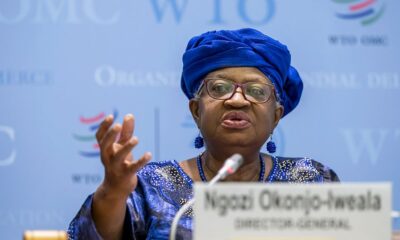
 Africa2 days ago
Africa2 days agoWorld Trade Organization says global trade could slide this year due to tariffs
-

 Sports2 days ago
Sports2 days agoNew Orleans Saints win lawsuit over fleur-de-lis trademark filed by ‘direct descendant of the Kings of France’
-

 Europe2 days ago
Europe2 days agoLive updates: Trump news, immigration and tariff updates
-

 Sports1 day ago
Sports1 day agoMajor League Fishing: Three people dead following boating crash on Lewis Smith Lake
-
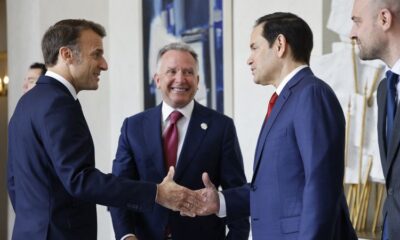
 Europe20 hours ago
Europe20 hours agoUS, Ukraine and European officials hold ‘excellent exchange’ in Paris, in highest level talks in weeks




